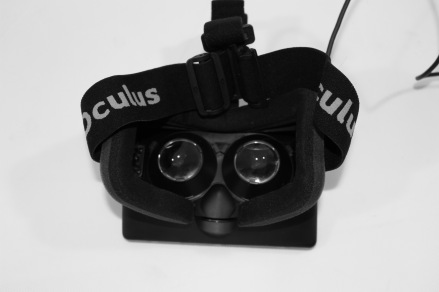By Anthony Piccinch

The tech industry has three different virtual reality headsets scheduled to hit the shelves this year. (Courtesy of Flickr)
The recent release of the Playstation visual reality (VR) headset has marked the true beginning of “the year of virtual reality,” as many tech hobbyists have dubbed the recent VR phenomenon. Countless virtual reality headsets have been released this year as many companies want to try to capitalize on this newfound consumer interest in virtual reality. The technology for virtual reality has been around since the 1960s, but it is finally somewhat affordable for the average consumer and is likely to change many industries besides entertainment.
The three major VR headsets that are to be released this year are the HTC Vive VR, Oculus Rift and the PlayStation VR. The HTC Vive VR starts at $799 and is by the far most expensive of the three VR headsets. The price includes two controllers to be used in tandem with your PC and Vive VR headset.
The HTC Vive VR is aimed at a niche group of PC gamers which helps explain the high system requirements needed for the VR headset to run properly. It is set to be released on April 5, 2017. The Oculus Rift is the other major VR headset set to be released for the PC starting at $599. It also includes a controller with high system requirements to be used with your PC. The Oculus Rift VR headset was the first major VR headset to be released during March of this year.
Lastly, the PlayStation VR headset is currently the only VR headset that has been created for console gaming, giving it exposure to a huge base of consumers. Another factor working in its favor is its price point at just $399. It will likely be the most mainstream way for the average person to experience high quality and immersive VR. Gamers at Fordham, like Matt Ly, GSB ’17, are hopeful that the new technology will enhance their experience. “I think it’s pretty cool,” Ly said. “It’ll be interesting to see where it takes video games.” Others feel VR won’t take off after this year. “I have no interest in virtual reality, as it is too expensive,” Connor LeClair, FRCH ’17, said. LeClair, like many opponents of VR, thinks it is an interesting idea but it is definitely not a necessary purchase, especially at the price points set for it.
Even if VR doesn’t take off for the entertainment industry, there are many other industries that are going to change due to more affordable VR technology becoming available.
The three major VR headsets outlined above are all focused on the consumer market and their ability to change the way people view movies and video games. This VR craze has been portrayed in the media as present in the entertainment and media industries, but there are many other industries that are also changing due to the emergence of VR.
Many educators are hoping to bring VR into the classroom to bring lessons to life. Students could explore famous cities such as Rome and Paris in virtual reality. In higher education, medical students could study how red blood cells travel through the body by taking a virtual trip through the human body, a lesson much more memorable than reading a textbook.
Healthcare has already been using VR for years. VR has been used to help treat PTSD, severe burn victims, phantom limb syndrome and various phobias. Surgeons have even used virtual reality to help get a better understanding of how to operate on patients that require complicated procedures. In real estate, many brokers are hoping to be able to give tours of properties in virtual reality, which would help sell properties to buyers who are not around to physically see the real estate but could still make an informed purchasing decision. They could even take a tour of a building that was not yet built. In many design and engineering firms, they are using VR to help better visualize whatever they are creating.
“The Year of VR” has been an important year for technology hobbyists. It has already made a big impact on the media and entertainment industries with the three major virtual reality headsets to be released this year. It has also made a large impact on other industries as well. Where will it take humanity next?
